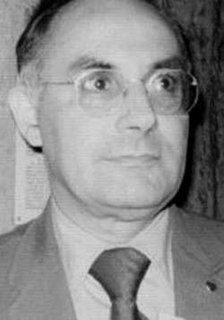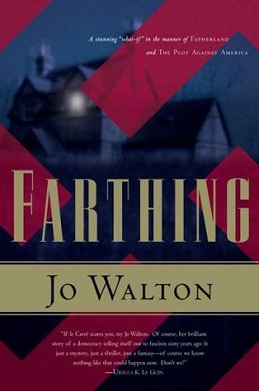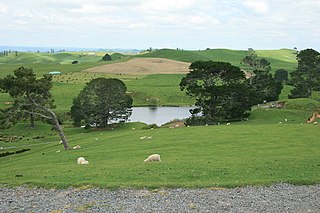Related Research Articles

Hugo Gernsback was a Luxembourgish-American inventor, writer, editor, and magazine publisher, best known for publications including the first science fiction magazine. His contributions to the genre as publisher—although not as a writer—were so significant that, along with the novelists H. G. Wells and Jules Verne, he is sometimes called "The Father of Science Fiction". In his honour, annual awards presented at the World Science Fiction Convention are named the "Hugos".

Pulp magazines were inexpensive fiction magazines that were published from 1896 to the late 1950s. The term pulp derives from the cheap wood pulp paper on which the magazines were printed. In contrast, magazines printed on higher-quality paper were called "glossies" or "slicks". The typical pulp magazine had 128 pages; it was 7 inches (18 cm) wide by 10 inches (25 cm) high, and 0.5 inches (1.3 cm) thick, with ragged, untrimmed edges.

Science fiction is a genre of speculative fiction that typically deals with imaginative and futuristic concepts such as advanced science and technology, space exploration, time travel, parallel universes, and extraterrestrial life. It has been called the "literature of ideas", and often explores the potential consequences of scientific, social, and technological innovations.
Farthing or farthings may refer to:

The penny-farthing, also known as a high wheel, high wheeler and ordinary, was the first machine to be called a "bicycle". It was popular in the 1870s and 1880s, with its large front wheel providing high speeds and comfort. It became obsolete from the late 1880s with the development of modern bicycles, which provided similar speed amplification via chain-driven gear trains and comfort through pneumatic tyres, and were marketed in comparison to penny-farthings as "safety bicycles" because of the reduced danger of falling and the reduced height to fall from.

Gardner Raymond Dozois was an American science fiction author and editor. He was the founding editor of The Year's Best Science Fiction anthologies (1984–2018) and was editor of Asimov's Science Fiction magazine (1984–2004), garnering multiple Hugo and Locus Awards for those works almost every year. He also won the Nebula Award for Best Short Story twice. He was inducted to the Science Fiction Hall of Fame on June 25, 2011.

Sam Moskowitz was an American writer, critic, and historian of science fiction.

The Magazine of Fantasy & Science Fiction is a U.S. fantasy and science fiction magazine first published in 1949 by Fantasy House, a subsidiary of Lawrence Spivak's Mercury Press. Editors Anthony Boucher and J. Francis McComas had approached Spivak in the mid-1940s about creating a fantasy companion to Spivak's existing mystery title, Ellery Queen's Mystery Magazine. The first issue was titled The Magazine of Fantasy, but the decision was quickly made to include science fiction as well as fantasy, and the title was changed correspondingly with the second issue. F&SF was quite different in presentation from the existing science fiction magazines of the day, most of which were in pulp format: it had no interior illustrations, no letter column, and text in a single column format, which in the opinion of science fiction historian Mike Ashley "set F&SF apart, giving it the air and authority of a superior magazine".

Jo Walton is a Welsh-Canadian fantasy and science fiction writer and poet. She won the John W. Campbell Award for Best New Writer in 2002 and the World Fantasy award for her novel Tooth and Claw in 2004. Her novel Ha'penny was a co-winner of the 2008 Prometheus Award. Her novel Lifelode won the 2010 Mythopoeic Award. Her novel Among Others won the 2011 Nebula Award for Best Novel and the 2012 Hugo Award for Best Novel; Among Others is one of only seven novels to have been nominated for the Hugo Award, Nebula Award, and World Fantasy Award.
The Carl Brandon Society is a group originating within the science fiction community "dedicated to addressing the representation of people of color in the fantastical genres such as science fiction, fantasy and horror... to foster dialogue about issues of race, ethnicity and culture, raise awareness both inside and outside the fantastical fiction communities, promote inclusivity in publication/production, and celebrate the accomplishments of people of color in science fiction, fantasy and horror."

Omni was a science and science fiction magazine published in the US and the UK. It contained articles on science, parapsychology, and short works of science fiction and fantasy. It was published as a print version between October 1978 and 1995. The first Omni e-magazine was published on CompuServe in 1986 and the magazine switched to a purely online presence in 1996. It ceased publication abruptly in late 1997, following the death of co-founder Kathy Keeton; activity on the magazine's website ended the following April.

Interzone is a British fantasy and science fiction magazine. Published since 1982, Interzone is the eighth longest-running English language science fiction magazine in history, and the longest-running British science fiction (SF) magazine. Stories published in Interzone have been finalists for the Hugo Awards and have won a Nebula Award and numerous British Science Fiction Awards.

Starlog was a monthly science fiction magazine that was created in 1976 and focused primarily on Star Trek at its inception. Kerry O'Quinn and Norman Jacobs were its creators and it was published by Starlog Group, Inc. in August 1976. Starlog was one of the first publications to report on the development of the first Star Wars movie, and it followed the development of what was to eventually become Star Trek: The Motion Picture (1979).

Stuart Moore is an American writer and editor of comic books and novels.

A science fiction magazine is a publication that offers primarily science fiction, either in a hard-copy periodical format or on the Internet. Science fiction magazines traditionally featured speculative fiction in short story, novelette, novella or novel form, a format that continues into the present day. Many also contain editorials, book reviews or articles, and some also include stories in the fantasy and horror genres.

A fantasy fiction magazine, or fantasy magazine, is a magazine which publishes primarily fantasy fiction. Not generally included in the category are magazines for children with stories about such characters as Santa Claus. Also not included are adult de 87about sexual fantasy. Many fantasy magazines, in addition to fiction, have other features such as art, cartoons, reviews, or letters from readers. Some fantasy magazines also 335uu08899 science fiction and horror fiction, so there is not always a clear distinction between a fantasy magazine and a science fiction magazine. For example, Fantastic magazine published almost exclusively science fiction for much of its run.

Farthing is an alternate history novel written by Jo Walton and published by Tor Books. It was first published on August 8, 2006. A sequel, Ha'penny, was released in October 2007 by Tor Books. A third novel in the series, Half a Crown, was released in September 2008, also from Tor, and a short story, "Escape to Other Worlds with Science Fiction", was published on Tor.com in February 2009.

Analog Science Fiction and Fact is an American science fiction magazine published under various titles since 1930. Originally titled Astounding Stories of Super-Science, the first issue was dated January 1930, published by William Clayton, and edited by Harry Bates. Clayton went bankrupt in 1933 and the magazine was sold to Street & Smith. The new editor was F. Orlin Tremaine, who soon made Astounding the leading magazine in the nascent pulp science fiction field, publishing well-regarded stories such as Jack Williamson's Legion of Space and John W. Campbell's "Twilight". At the end of 1937, Campbell took over editorial duties under Tremaine's supervision, and the following year Tremaine was let go, giving Campbell more independence. Over the next few years Campbell published many stories that became classics in the field, including Isaac Asimov's Foundation series, A. E. van Vogt's Slan, and several novels and stories by Robert A. Heinlein. The period beginning with Campbell's editorship is often referred to as the Golden Age of Science Fiction.

The Shire is a region of J. R. R. Tolkien's fictional Middle-earth, described in The Lord of the Rings and other works. The Shire is an inland area settled exclusively by hobbits, the Shire-folk, largely sheltered from the goings-on in the rest of Middle-earth. It is in the northwest of the continent, in the region of Eriador and the Kingdom of Arnor.

K. Tempest Bradford is an African-American science fiction and fantasy author and editor. She was a non-fiction and managing editor with Fantasy Magazine from 2007 to 2009 and has edited fiction for Peridot Books, The Fortean Bureau and Sybil's Garage.
References
- 1 2 Eamonn Murphy (1 April 2007). "FARthing: Science Fiction, Fantasy & Horror - January 2007 - issue 5". SF Crowsnest. Retrieved 28 October 2015.